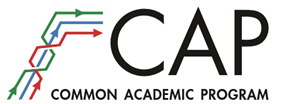LTC

Common Academic Program approves 500th course
During the 2020-21 academic year, UD students might choose to examine the intersection of communication and cybersecurity in CMM 453 or learn ways to apply Lean Six Sigma management principles to engineering and beyond in IET 408/ISE 408.
The two classes, which were approved Feb. 28, are the 499th and 500th courses to be approved as part of the Common Academic Program (CAP), marking a key milestone for the undergraduate general education curriculum the University launched in 2013.
CAP was designed to engage the seven institutional learning goals — scholarship, faith traditions, diversity, community, practical wisdom, critical evaluation of our times and vocation — and aim to challenge students and faculty to link aspects of their own lives, majors and careers to a broader world.
“The fact that we have had faculty create an average of 100 new CAP courses a year over the past five years is noteworthy," said Deb Bickford, associate provost for academic affairs and learning initiatives. “So many faculty have contributed to the evolution of CAP.”
CAP courses encourage collaboration and innovation among faculty across disciplines to offer students educational experiences relevant to their interests and future goals. From the first 27 courses approved in 2012-13 to the 500th course, CAP courses are offered in all academic units. The Lean Six Sigma class recently approved, for example, is offered within the School of Engineering.
“As CAP was getting off the ground, we didn’t want it to be seen as the province of the College of Arts and Sciences,” said Michelle Pautz, assistant provost for the Common Academic Program. “We were intentional in engaging faculty and staff across academic units so they could see the value of integrating CAP in their teaching to advance student learning.”
CAP courses were unveiled in stages, starting by integrating the existing first-year humanities commons that included four 100-level courses in English, history, philosophy and religious studies for 12 total credit hours. An oral communication course and natural sciences component were also part of the first-year CAP requirement, together accounting for 10 total hours.
Second-year components include a writing seminar, and mathematics, social science and arts courses for 12 credit hours. In the latter years, students take various crossing boundaries components, including faith traditions, practical ethical action, inquiry and integrative courses that link classroom studies to a 21st century living and working environment. Advanced studies components in philosophical and/or religious studies and historical studies and a diversity and social justice component are also included.
CAP concludes with a major capstone course, typically in the final year.
Pautz, a political science professor, said she’s appreciated how CAP has influenced her own teaching by bringing a mix of students from a variety of majors together in her classes. Their questions from engineering, business or educational perspectives challenge her to think differently the material she presents for discussion. Some courses are team taught by faculty across disciplines, helping generate more opportunities for faculty and student learning.
“Whatever profession you pursue, you’re going to be working with people from a wide range of backgrounds,” Pautz said. “CAP prepares you more for the workforce, and life beyond UD.”
She cited the example of one premedicine major who took ANT 336 – Medical Anthropology: Rethinking Global Health. The course fits both the crossing boundaries integrative and diversity and social justice components, and the student said the class would help him gain a broader perspective about the needs of the patients he’d treat in his future medical practice. He appreciated the course’s lessons so much that he mentioned it on his medical school application, Pautz said.
CAP courses have four-year review cycles, enabling faculty and departments to revisit the fit of a course and its evolution for CAP components.
“The fluidity of courses helps keep CAP fresh and relevant,” she said
